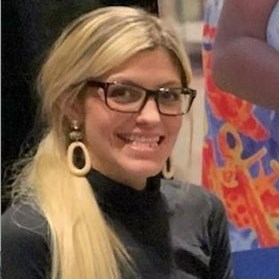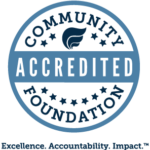National Literacy Month: An opportunity for reflection and inclusion
Sep 22, 2020
By Contributing Editors: Jaime Perri, Executive Director, and Ashley Nechaev, Academic Director, at Horizons at Sacred Heart University
“Books are mirrors to our world and windows to opportunity; but they are also much more: they are actual doors to a life of sustainability and success, to our lives, and each of us has a responsibility to walk through them.” -Kwame Alexander

As with most events and occasions in 2020, observing National Literacy month this September is a unique experience. National Literacy month is typically observed by reminiscing about favorite childhood stories and sharing literature with children and young adults in classrooms and at home. This year, however, we cannot help but consider the disproportionate impact that narratives have on young readers, especially young readers of color.
Consider the range of texts you were exposed to in classrooms and in your home growing up. Likely, the stories included predominantly White characters and were written for predominantly White audiences by White authors and illustrators. Now, consider your first encounter with a narrative that included a person of color. Unfortunately, this story likely stereotyped a Black or Brown character as disenfranchised.
Most of us remember reading a story and connecting so profoundly to a protagonist that through this connection our identity was affirmed and made us feel a strong sense ofbelonging. Through these relationships with powerful characters, we began to develop the sense that we had great potential and importance. In this way, narratives, and the characters within them, are a powerful part of child development.

The implications of literature that lacks diversity is troubling for both Black and White readers alike. As our country strives to honor Black lives and fights for equity through the Black Lives Matter movement, we must give all students the opportunity to locate themselves in texts, to connect with powerful characters, and through the power of narrative, see themselves and others as capable, worthy, and important. Literature is the vehicle through which we socialize children and transmit cultural values. What social and cultural messages are we conveying if Black and Brown characters are not equally represented in narratives? What is the message we risk sending if the majority of literature we share with students is created for a White audience? According to Rudine Sims, a professor at the University of Massachusetts, “for Black children, the absence of positive images in children’s books [is] a clear signal that they themselves [have] little worth in the society that the book reflects.”
“The Black characters we did get in our books were often peripheral, or were caricatures—or possibly, made to stand as a statement, to educate, to teach a diversity lesson. The latter is not necessarily a bad thing, but it is a bad thing if it’s the only way races other than White are portrayed, and continues to be so.” -Walter Dean Myers
Multicultural Literature Provides Opportunity for Horizons Students to Realize their Potential
At Horizons at Sacred Heart University (HSHU), equity in education is at the heart of everything we do and culturally inclusive texts take center stage. We believe strongly that narrative – especially stories for young children – can change the way children see themselves and understand the world.

At HSHU children in kindergarten through high school are presented with literature that provides powerful protagonists that are culturally inclusive. In doing so, all HSHU students have the opportunity to explore their humanity and wonder about their own power to impact the world.
The HSHU curriculum is mission driven, providing opportunities for students to realize their potential. Each day in classrooms, this starts with a carefully selected text that classroom communities read and explore together. Teachers help students to wonder about the ideas and characters in the stories by asking open ended questions that fuel student curiosity and affirm their sense of belonging and self-worth. The conversations are honest, poignant, often difficult, and challenge the community to imagine a more equitable tomorrow.
Thanks to the generous support of Fairfield County’s Community Foundation, students in our summer program were able to use the novels they were reading to frame discussions about current day racial and social justice movements.
Make National Literacy Month an Equitable Celebration
We believe that National Literacy month, now more than ever, provides a platform to bring the importance of diversity in literature to the forefront. Matt de la Pena, an author, and advocate for diversity in literature, challenged readers to explore all types of literature. We believe that his challenge, presented below, is relevant now more than ever, for adults and children alike:
As you celebrate National History , if you are Black or Brown, read books that celebrate who you are. Read books that put your face, your experience, front, and center. And when you read these books, when you look at yourself in the mirror, see and feel the love staring back at you. Celebrate who you are. Celebrate where you come from, your family, your roots, your joy.
If you are White, spend this month reading books that celebrate Black and Brown characters. Read books that put someone else’s face, someone else’s experience, front, and center. And when you read these books, when you peer through these essential literary windows, see and feel the love of your neighbor. Celebrate who they are. Celebrate where they come from, their family, their roots, their joy.
So, if you believe, like we do, that Black and Brown lives matter, read stories featuring Black characters that are written or illustrated by Black creators. Fill your shelves, at home and in classrooms, with books that reflect and celebrate a variety of experiences. Share and discuss these stories, especially with children so that all children have the opportunities to find their humanity and recognize their potential.
“Storytelling is the most powerful way to put ideas into the world today. –Robert McKee
Multicultural Literature Recommendations From Horizons at SHU
The link below can be used to access a list of culturally inclusive texts that fill the shelves at Horizons at SHU. The texts are our community’s favorite titles. These stories have sparked powerful conversations within our classrooms and provided opportunities for children to connect with characters that inspire them to see themselves and others as worthy, important, and capable of making great change.
 Jaime Perri
Jaime Perri
Executive Director,
Horizons at Sacred Heart University
https://www.horizonsatshu.org/
 Ashley Nechaev
Ashley Nechaev
Academic Director,
Horizons at Sacred Heart University
https://www.horizonsatshu.org/
Horizons at Sacred Heart University is a tuition-free educational non-profit serving low-income children in Bridgeport. The heart of our program is a full-time, six week summer program which features a project-based, child-centered literacy and math curriculum delivered by master teachers, a Harvard-designed Social Emotional Learning curriculum, a trauma informed practice initiative, and a variety of enrichment activities in cooking, yoga, STEM, wellness and physical activity, swimming lessons, music, art, field trips and more. We also offer Saturday programming throughout the school year and are a constant resource to our students and families. HSHU makes a 12 year commitment to every child who enters in kindergarten and they participate in the program through high school. With a strong focus on equity in education, our mission is to provide opportunities for Bridgeport students to enhance their critical skills and develop a love of learning.


